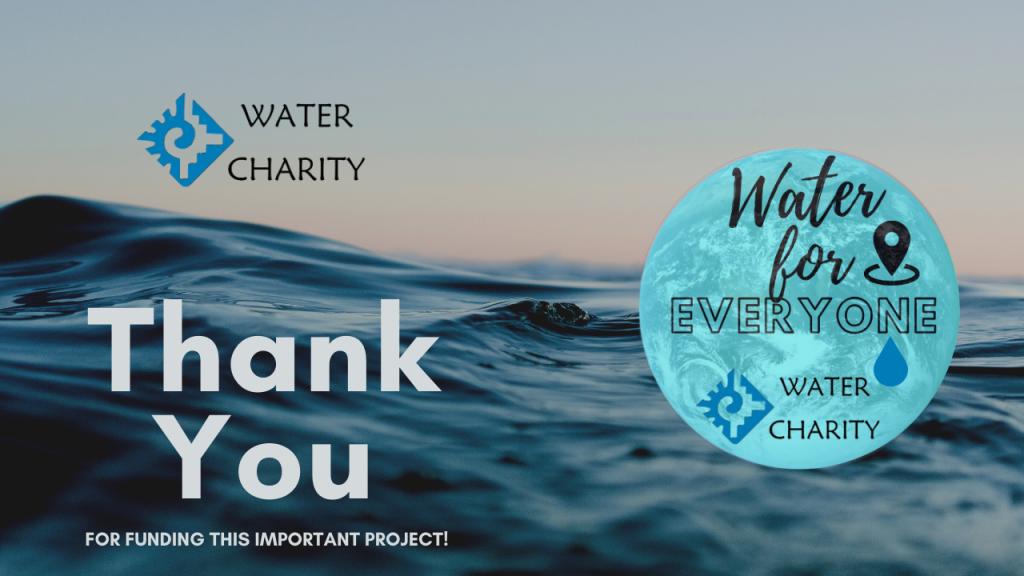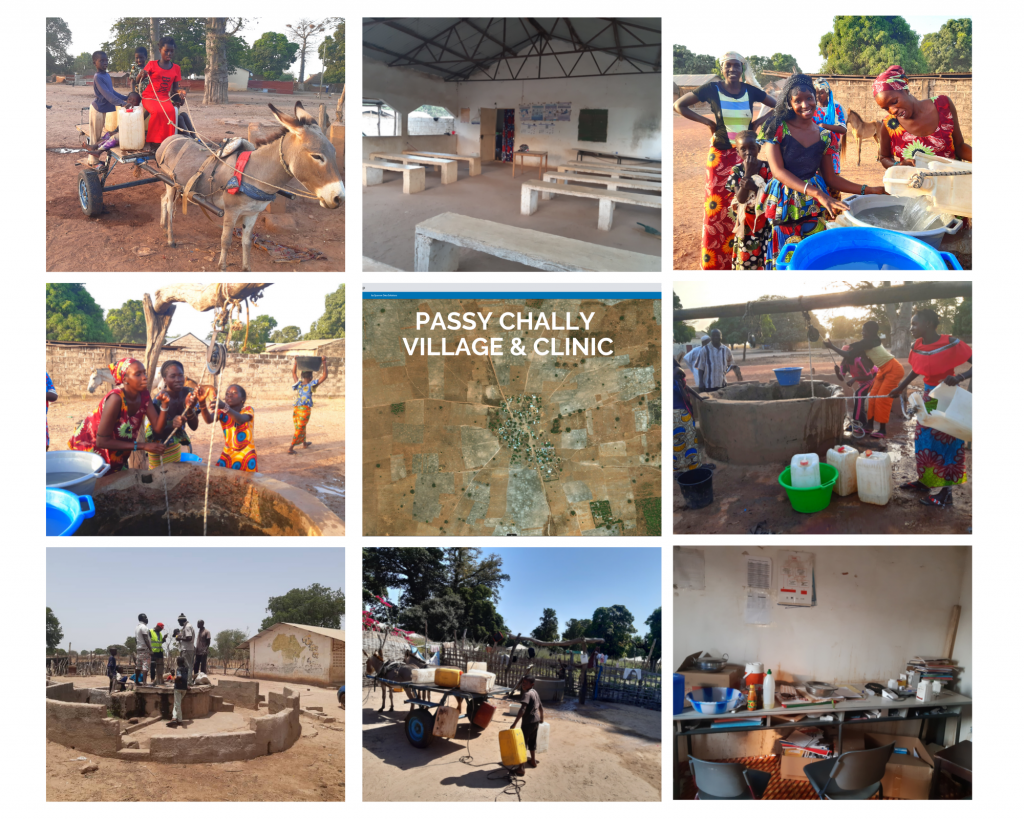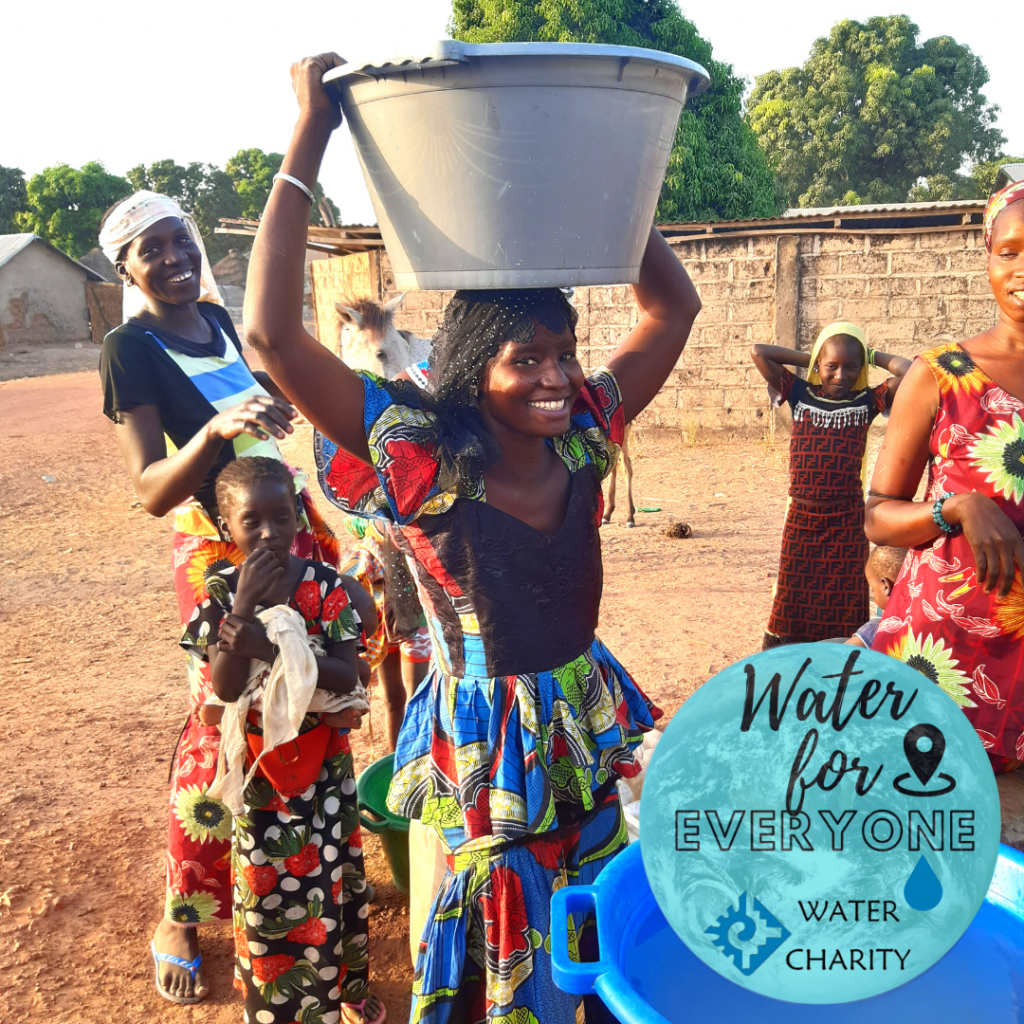
Passy Chally Village, Upper Niumi District, North Bank Region, The Gambia. West Africa; GPS Coordinates: N13°29.983 W016°17.443
DESCRIPTION OF PROJECT COMMUNITY
Passy Chally is a community situated about 4 Kilometers south of Ndungu-Kebbeh via the North Bank Trans-Gambia highway. About 1300 people live in the community, which consists of 51 households. The community is made up of the Wollof tribe clan called the ‘’FanaFana’’. They are subsistence farmers growing groundnut, millet and maize. The community is also very popular with traditional Wollof singers called ‘’Guewel.’’ They still practice ancient Wollof traditional singing.
The community has a health post/clinic that serves 8 villages within the Upper Niumi District. It also has a primary school. Although a few decades ago the community didn’t embrace western education, with the availability of a school in the community significant progress has been made in the enrollment of boys and girls. More work needs to be done still, especially in the area of girls’ enrollment.
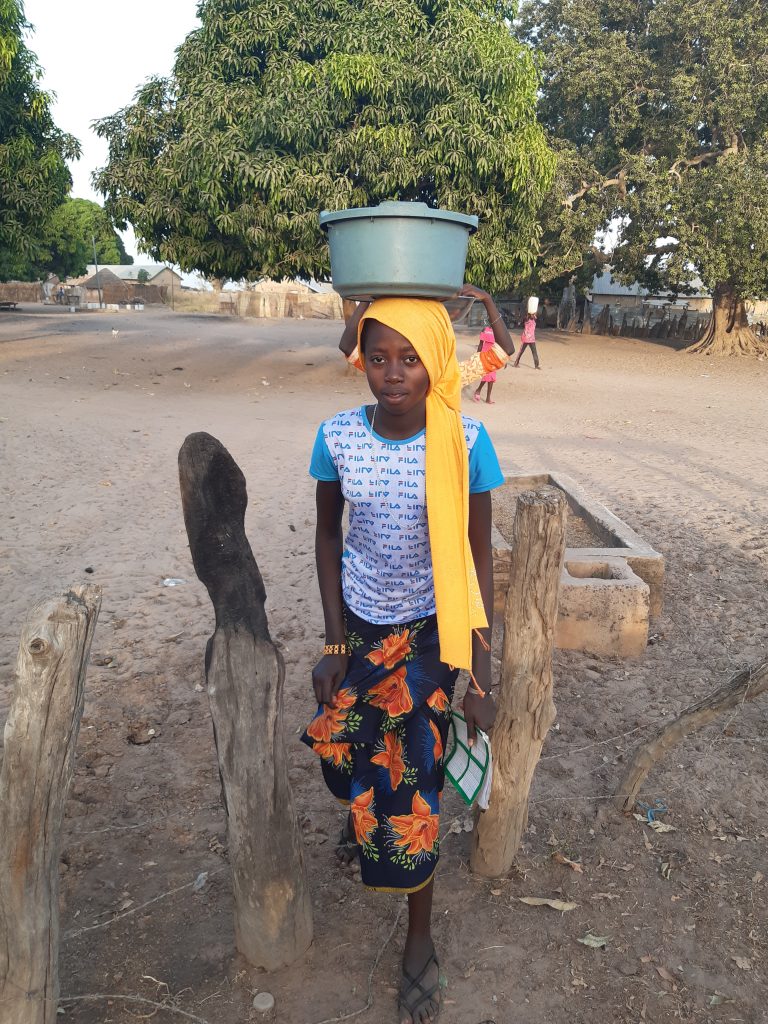
DESCRIPTION OF PROBLEM
The community is entirely dependent on three open wells that they use for drinking and other household activities. These wells normally run dry within hours. People have to make long queues just to have some amount of water from the unsafe open wells. The rate of diarrhea and other water related illnesses has grown significantly, according to Madam Mariama Jallow, the Senior Nurse in charge of the community health post/clinic. Hardly a day goes by without an infant getting sick from water-borne diseases, she said. At times, the diarrhea cases are dire enough that she has no option but to refer the patients with serious dehydration issues to the Regional Health Center in Kerewan, which is about 30 KM away. Acute dehydration is also common in the community, as well as other illnesses related to the shortage of water and its poor quality, especially in the rainy season–coupled with malaria.
The community’s health post offers services such as Family Planning, HIV/AIDS counselling and services, Tuberculosis treatment, Reproductive and Child Health services, and immunization, among others. The clinic covers 8 villages and the yearly turnout is about 13,000 people. The clinic does not have any water supply. The nurses get to the open wells to fetch a few buckets of water in order to carry out their services. Much of the time the wells run dry and the clinic cannot offer services. Patients often suffer as a result. Nurses have to dip into their own pockets to buy a few bottles of gas to boil or disinfect the water and even equipment for fear of contamination or cross infection among patients. This creates huge delays in their work–endangering all of the clinic’s patients.
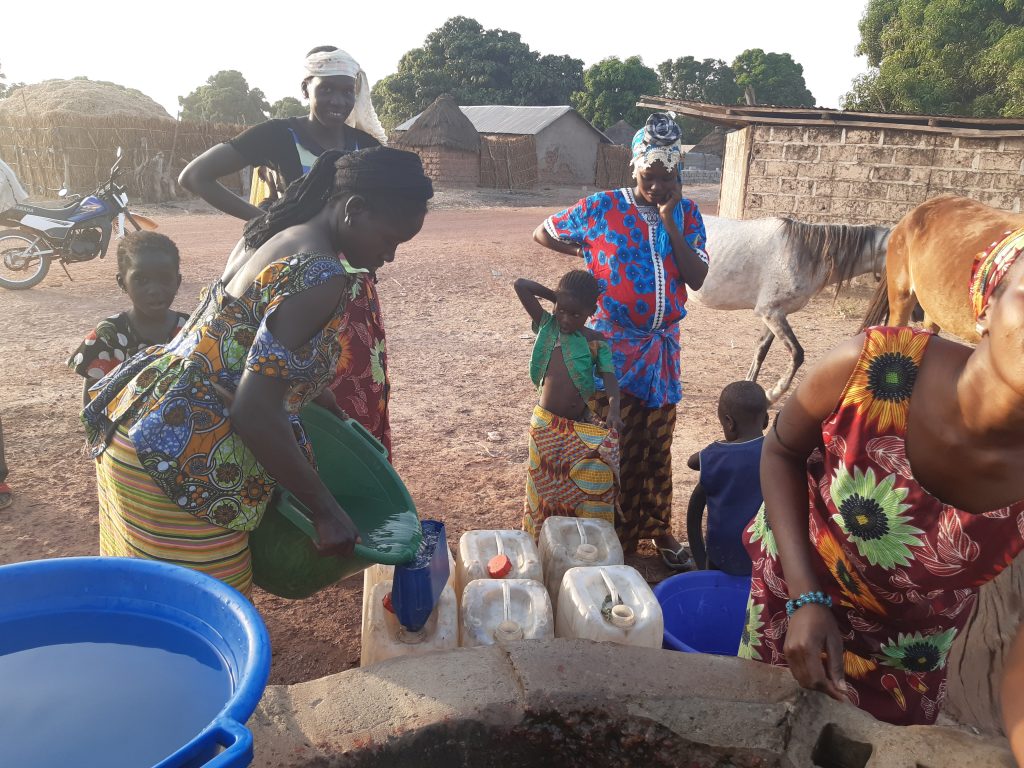
The entire village is suffering from the consumption of water from open wells. Oumie Njai a 48-year-old mother of five said she lacks sleep and feels unhealthy as a result of pulling the rope to fetch water from the deep wells just to help her family have some amount of water to keep them going through the day. “It is so hard,” she said. “I am living but not living,” she said. “Waking up at 3AM to join the queuing at the wells has become the daily norm for me for the past decades.” Fights frequently break out at the wells as a result of argument as to who comes first. This has led to animosity among women of the village, which siphons down to the men and even households having animosity or hatred among themselves. Currently one of the wells is not in use as a result of a goat that fell down in the well and decomposed. The well has since been abandoned. As a result, the community is now using two open wells, which is triggering yet more conflicts, fights, and hardship for the community.
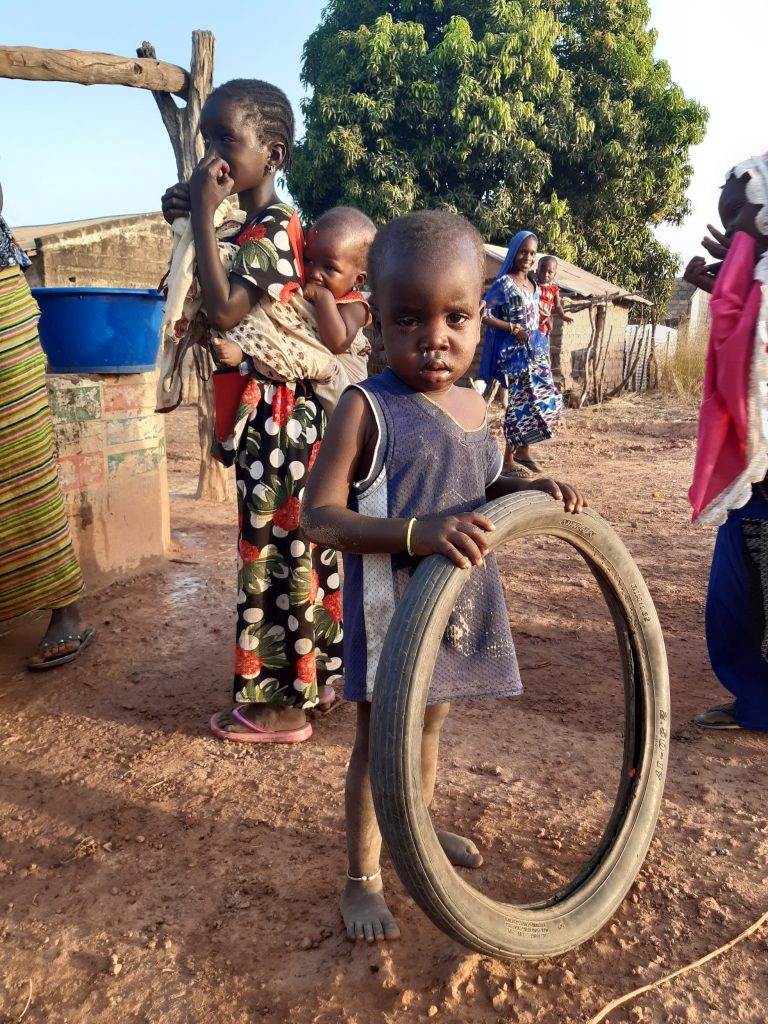
DETAILED PROJECT DESCRIPTION
The project will be carried out in two stages:
Stage 1: Since the water table is very low for the area, the highly reputable drilling outfit has advised for the drilling of a 6-inch borehole at the depth of 80 meters. This deep drilling will provide ample flow of clean fresh water all year round. A high quality powerful GRUNDFOS submersible solar pump will be installed along with high quality monocrystalline solar panels fully secured with bolt nuts on a galvanized solar panel frame. A 6-meter solid concrete tower will be built and 6,000-liter triple coated water storage tank will be mounted on the solid concrete tower fully braced with galvanized iron bars and a float switch installed. The borehole drilling outfit will be fully monitoring for quality assurance and effective execution of work with warranty.
Stage 2: This stage involves the laying of pipes from the water tower to five selected water points (taps) in the village and two for the clinic including the toilets, making a total of seven. This will be done by a highly trained and reliable plumbing outfit to be supported by the villagers. It will make water accessible and easier to reach by all villagers even though some areas of the community live within distance. Making water points accessible within meters will be a huge advantage. The pressure pipes and plumbing materials will be of high-quality material considering the harsh environmental condition around that area, with temperatures reaching 42 degrees Celsius in the dry season, and harsh winds in the rainy season, which requires the water tower to be made of solid concrete.
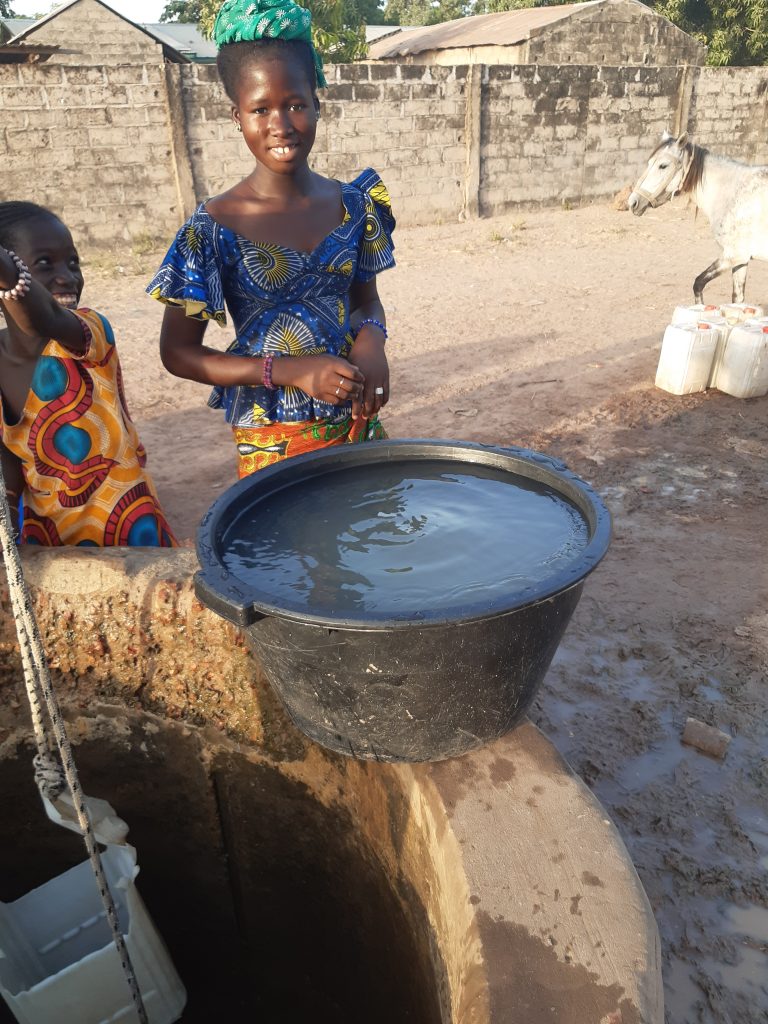
COMMUNITY PARTICIPATION
The community will do all manual works including digging of trenches for pipe laying. They will also provide Gravel, sand, cement, iron rods and transportation as their contribution towards the project. Any other needed manual labor will also be provided by the community. They will also host and feed workers.
WATER CHARITY FUNDS
Will be used to pay for materials and skilled labor.
MONITORING AND MAINTENANCE
A 6-member water management committee has been set up which consist of serious and dedicated people chosen by the villagers in a meeting held at the village Bantaba (village square). The selection of the committee members was gender balanced. Mrs. Amie Samba was made head of the water management committee while Mr. ModouTouray was made the assistant head. Mrs. SaffieTouray was made the treasurer and Mr. OusmanNjai was made the leading auditor, to be assisted by two other people. Training will be conducted for them on the community management model techniques. Further training workshop will be conducted for them after the completion of the project, to sensitize them on the importance of taking good care of the taps and the entire water system to maintain durability. The selected water committee members will be visiting taps regularly on every street to check if every tap is working properly. It was strongly agreed at the same meeting that Every month, each household head will pay a token and a bank account will be opened by the village water committee, with three mandatory signatories, where the collected amount will be saved for future maintenance and repair. The committee will be transparent and audited in their financial transactions, reporting monthly to the villagers at the Bantaba (village square) to be coordinated by the Alkalo (Village head). Through this, the community will have a sense of ownership and responsibility and also ensure sustainability of the project.
Three people have been identified to be in charge, monitor and control the solar powered water borehole system after completion of project, instead of everyone touching things and thinking they have the know-how with regards to the water system. As in most places at times this brings about serious breakdown in the water system. The borehole drilling outfit have offered to train these three identified persons on the usage of the water system and how to report to them if there is any fault.
Water Charity Program Manager (Ebrima Marong) will visit the community regularly to check whether the system is working accordingly and also check if the water management committee is working effectively, and to offer advice.
The Senior Nurse in charge of the clinic has assured of high-quality control of the taps at the clinic after the completion of the project. She is confident that this will increase the service delivery at the clinic and ensure safe and secure working atmosphere for them and the patients.
Girls in the community are feeling the heavy burden of water collection, that’s according to the head teacher of Passy Chally Basic school. The school has significant number of absenteeism especially among school going girls. The availability of this project will immensely boost girls’ enrollment at the school since most of the girls in the community aren’t attending school. Girls are mostly used for water collection or other household works related to water.
PROJECT COST: $10,200
